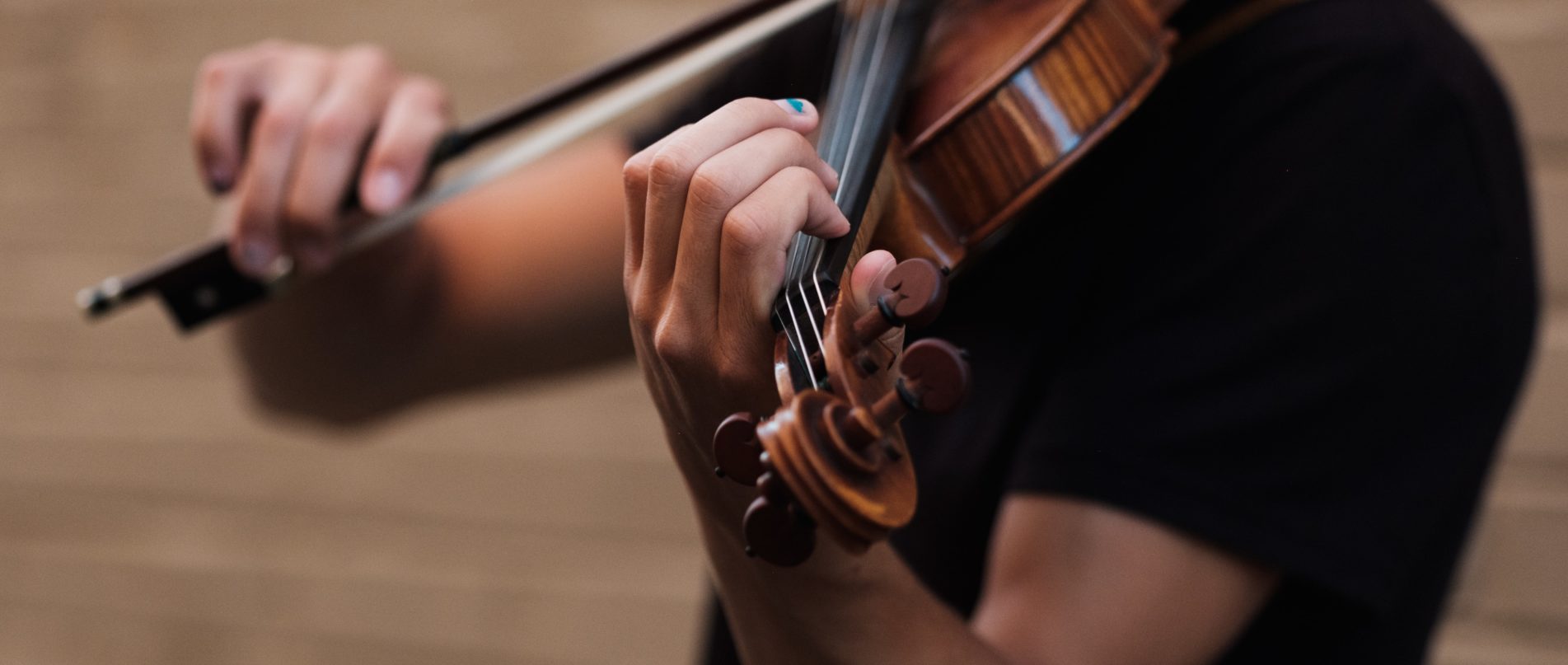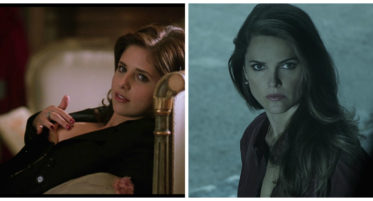
Prompt Images
“Ezekiel!”
Ezekiel “Easy” Emmanuel snapped his playbook shut. “All I’m saying is, I know the metaphor, but I still don’t see why you can’t get someone else to play the Fiddler and use the recording that they practice the opening scene with.”
“I know you. You have never skipped class, and you played a flawless violin concerto this past summer with the Municipal Opera company’s June Fundraiser. I was there, remember?” Michael Albertson, Musical Arts teacher, had held off on his summer vacation to see Easy’s debut with the Municipal Opera.
Easy rolled his eyes, sighed, and shook his head. “My dad will never let me.” The high school sophomore looked torn.
“You said the same thing about auditioning for the opera. What happened?”
“He let me.”
“He did.” Albertson spread his hands. “Ask. That’s all.”
On Wednesday, while Albertson was grading a stack of pop quizzes, Easy knocked on the door to the band room.
‘Come in,” Albertson invited. “Take a seat. I’ll be right with you.”
Easy slipped through the doorway and sat in the front row, waiting to be acknowledged.
Eventually, the teacher looked up from his stack. “Ah! Ezekiel! How can I help you?”
“My dad called the play an unnecessary extracurricular and said that if my grades slip at all he will pull me out of the play. But when I called Mom, she seemed excited. So I guess I’m in.” Easy gave a sheepish grin.
“Excellent. Let’s get to work right away.” Albertson stood up from his desk and shuffled some music in his piano bench by the window. The room was crowded with band and orchestra supplies, but it was still quite large with sound tiles on the walls. “I printed the violin sheet music and arranged some additional violin accompaniment for some of the songs that don’t traditionally have violin. Nothing to overshadow the cast, of course.”
“The introduction,” he continued, “to the play is the violin itself. It’s in the title, and most high schools don’t have the opportunity to have a talented violinist like you.” Albertson handed the sheet music to Easy. “Fiddler on the Roof by Bock, Harnick, and Stein’s first moments go to the fiddler: The theme goes bum-bum-bum bum-bum, bum bum-baddabump bum bum.”
Easy nodded, trying to sight read his violin music. His hand itched to grab his bow and violin. As though sensing this, Albertson sent Easy to go retrieve his instrument from the locker. “We have three months before the play,” the teacher said. “I’ll get you a copy of the rehearsal schedule.”
Easy’s dad worked long hours, often late, and wasn’t home yet when Easy finished his homework for everything except the play.
Taking his playbook with him, he crawled from his attic room window to the lower part of the roof, facing the backyard. He settled in amongst the branches of the nearby tree that often tapped his window at night, reading Tevye’s opening lines and smirking.
“How appropriate,” he thought, moving his leg out from under him on the shingled roof of the light blue house.
The evening lengthened around him, and soon it grew too dark to read anymore.
“Ezekiel,” called a deep bass voice from inside the house. Easy scrambled off the roof and into his bedroom.
“Here, Dad!” He flopped on his bed and tried to look casual.
His dad opened the door. “I—. Oh, your window is open.”
“Yeah, I wanted to feel the autumn breeze.”
“Right. You were on the house again.”
Easy looked away.
“We talked about this. You’re not allowed to sit out there. It’s dangerous. You could fall and…”
“Break my neck, I know, I know.”
Easy’s dad, Franklin Emmanuel, narrowed his eyes. “Promise me. I want to hear it.”
“Yes Dad, geez.”
“Don’t ‘geez’ me. Promise.”
“Okay, I promise.”
“You promise what?”
“I promise not to sit on the roof.”
“…Or in the tree.”
“…Or in the tree,” Easy said begrudgingly.
Emmanuel sat on Easy’s bed. Easy curled into a bit of a ball, clutching his playbook as though it might be snatched away by his guardian.
“I’m going on a business trip in a few weeks,” stated Emmanuel. “I need to know I won’t come back to ruined grades, a broken arm, or any other tragedies while I’m away.”
“Can Mom come over?”
“Yes, as long as she brings her own food to eat. Our food is ours. Not hers.”
Easy uncurled a little. His playbook was now tucked between his chest and his knees. “Okay. I’ll call her in a little bit.”
Days moved quickly and soon there was a rhythm to the daily cadence of classes, followed by the occasional refrain of practice after school.
The soundtrack of Fiddler (as the drama kids had truncated the title) was slowly merging with everyone’s subconscious as they practiced their steps, lines, and songs.
The cast and crew were very welcoming to Easy, and he gravitated toward a few familiar faces from orchestra class. Jacob, a stagehand; Sirena, playing one of Tevye’s younger daughters; and Louis, playing Lazar Wolf, the foil to Tevye’s plans in the first act.
He knew them as Jacob, the cymbals player, Sirena, the flutist, and Louis, the oboe enthusiast. And they knew him as Easy, or at least, they did now.
“Easy is a cool nick. You can call me ‘Rena,” Sirena said quietly as the other actors rehearsed their lines on stage.
“Rena,” Easy turned the name over in his mouth. “Okay, yeah.”
When he got home from play practice on Friday, there was a letter on the kitchen counter, three pages, with instructions on exactly how he was to conduct himself, feed himself, study, and a P.S. reminding him not to have classmates over, and P.P.S. remind him of his promise to stay off the roof.
He called his mom. “Elvis has left the building.”
“What?!” a very confused 40-something female voice exclaimed.
“Dad’s on a business trip.” His eyes widened. “Didn’t I tell you? I thought I told you.”
“Oh! Yes, I remember now. But tell me again.”
So he told his mom again, for the first time.
The doorbell rang at 10 A.M. on Saturday morning. Easy pounded down the stairs and flung open the door.
“Hey, Easy. I brought bagels and strawberry cream cheese.” His mom gave a self-conscious smile, lifting the box of bagels. “Hug?”
Easy gave Pauline Rubella-Hunt a hug.
They made small talk as she entered the house that she once inhabited, following with catching up.
“Have you been lonely, Easy?”
Easy grabbed a pair of butter spreaders and plates. “Not really. Dad is gone a lot, working. So it’s kind of like he’s at work.”
“Well, he is.”
“Right, right, he is, just… not here, you know?”
Rubella-Hunt nodded. “And what else is new? How did the play audition go?”
“It wasn’t so much an audition as… well… they gave me a part.”
“Exciting, though! How do you like it?”
“I… I don’t know. It’s Fiddler on the Roof.”
“Are you a chorus member?”
Easy shook his head. “No, Mom. I’m the title character.”
Rubella-Hunt nearly dropped her bagel. She sputtered for a moment while Easy grinned. ”I’m so… That’s… Wow, Easy!”
“I’m playing all the violin parts in the play, and I thought you could listen to me practice.”
“Yes, Absolutely.”
Weeks passed, and the play was becoming a distraction to his father.
About six weeks in, Emmanuel sat down to dinner with his son.
“I’m pulling you out of the play,” Emannuel said. “It’s too close to winter finals for you to study properly.”
It had been a weekly fight for Easy, on Monday morning, or Saturday evening, or anytime the thought occurred to Emmanuel.
Weekly, Easy would lay out his game plan, ready to dodge and weave through the torrent of reasons why his extracurricular activity should be cut. He started to practice at home less and less when his father could hear him. Ashamed of his occasional scratchy notes, and his part in the play, he found it difficult to find familial relief.
“I can put the drama club on my college applications,” he wheedled. “I have been keeping up with my homework, and have a whole week after the play to study for winter finals.”
Easy squared his shoulders. He looked his father in the eyes.
“I didn’t know how badly I wanted this. But I did. And it’s not something you can take away, this feeling of belonging to something special.”
Emmanuel huffed noncommittally. “Don’t make me into the bad guy here. I’m only worried about your future.”
“Mom would let me. She said she’s proud of me.”
“Well, I’m not your mom, and there’s a reason she’s not here.”
“Call my teachers. Call them. And they’ll tell you my grades are fine.”
“We’ll see.”
“Dress rehearsal week,” Easy was told, “is to be feared.” Rena grinned evilly. “Welcome to Hell week.”
They were painting one of the backdrops for the wedding and nightmare scenes of the play.
“Really, Hell week?” Easy raised an eyebrow while focusing on his task.
“You’ll see,” Louis said, carrying a ladder past them with one of the other drama students.
Emmanuel did see.
After meticulously calling around to all of Easy’s teachers, weeks of telephone tag, and casual voicemails eventually turned up data about his son’s grades. And then, finally, he got around to speaking with the Musical Arts teacher about Easy’s orchestra grades.
“Easy—Ezekiel—is an exemplary student.” Albertson controlled his voice carefully. “Ezekiel tells me that you might pull him out of the school production.”
“Yes,” began Emmanuel.
“Please don’t. He’s worked so hard, hard as any of the speaking roles, and to pull him out would mean an irreplaceable void on opening night.”
The words gave Emmanuel pause.
“Please, let him perform.”
“Okay,” relented Easy’s father.
“Thank you.” Albertson felt ashamed for begging, grateful for the result, and frustrated in ways he dared not to let his voice betray.
Easy didn’t question his father’s sudden change of heart.
However, he did get a lecture on how his grades were doing. Although they hadn’t slipped, they also hadn’t improved over the previous year, but with mostly A’s and a few B’s, his Easy was tempted to let it all slide for hell week.
He didn’t have to worry so much. The professors took pity on the drama students by lengthening deadlines to the Friday after the play week for term papers.
As he stood on the gangplank that was a bit lower than the shingled false roof, Easy listened to Albertson and the stage manager discuss his debut.
“A spotlight on Easy as the first strains of the violin begin to play. Then lights up on Tevye.” Albertson consulted his notes and the stage manager nodded, going over the light cues on his sheet before going up to the sound and light board where some of the backstage team members were.
The music was now entirely Easy and Albertson, the recordings went by the wayside as Albertson played on piano and Easy accompanied him.
“Tradition! Tradition!” sang the chorus as Tevye introduced each segment of the community in his little town.
Easy continued to draw the bow across his violin in time with the swirling mass of dancers that he watched from above, careful not to move from the X marked on the “Roof” where he stood.
“Stop, stop,” the choreographer said, just before singling out a few of the minor characters that were having trouble with the dance moves. Easy knelt on the gangplank and found a comfortable position to sit in while they went over the moves.
Hell week was living up to its name in a few small ways.
The repetitive nature of doing scenes over and over again was like living in a time loop. Everyone was in full make-up to help the make-up committee practice for dress rehearsal and the performances. It was hot under the stage lights, and cool backstage.
He refused to let his violin and bow out of his eyesight at all times. There was a place on the prop table for it, marked into a long rectangle, but he never used it.
As the evening wore on, they made it to the first act finale before breaking for the night. And Hell week wore on, followed by the culmination of all the hours of practice, days of song, and character lines.
The first night, before they opened the ticket booth, the cast and crew gathered on the stage.
“Gather ‘round,” called Albertson, “In a circle please. Put your stuff over to the side. I want your hands free for a minute. Cell phones in pockets, please. Thank you.”
Concerned about parting from his violin, Easy gripped his bow and instrument tightly. Rena and Jacob convinced him to join the circle and leave his violin, for the first time, on the prop table.
He looked over his shoulder at it as he walked away, trying to quell the feeling of dread in the pit of his stomach.
“We did it, everyone.” Albertson gave a broad smile. “We’re all here, we’re still breathing, and we made it to performance week. It’s a tradition to gather everyone for a pep talk the night of the performance. I’d lead us in a prayer, but there’s a group that will lead a non-mandatory prayer out in the foyer afterwards.”
“Is there anyone that would like to say anything about the journey?” asked the stage manager.
Jacob raised a hand. “Let’s do this!”
Easy smiled and shook his head as there were assorted cheers and groans.
“I have something to say,” one of the seniors, cast in the role of the matchmaker, stepped forward a bit. “On behalf of the seniors, I was a little worried about handing over the reins to the next generation. But you have changed my perspective. With your diligence, work, and professionalism, we have a complete play. We did it! And we’re going to go out there, and have an amazing senior production thanks to everyone.”
At Albertson’s urging, everyone held hands and raised them up high. “To Traditions!” they shouted in off-kilter unison.
“Now, there’s pizza in the orchestra room for those that need to eat something before getting ready, and make-up is due in 45 minutes to an hour. Curtain, as you know, is at P.M. Break!” Albertson clapped his hands together and everyone dispersed.
Easy was swept with the tide of students to the orchestra room, and forgot all about his violin until just before curtain.
“Where’s my violin?” He looked at the prop table, where the rectangle he had left his instrument at, and it was as empty as it had been in all his rehearsals. The difference was, during rehearsal, he stuck to the instrument like glue.
“What’s wrong, Easy?” Jacob and Louis stood on either side of the violinist.
“My violin! Jacob, it was here, you saw me put it here, right?”
“I did.”
“Then where…?”
The voice of a screeching malformed note came from the boys’ dressing room. Easy booked it.
The actor playing Tevye was holding the violin on his chin, bow at his side now. “How does he play this thing?”
Easy narrowed his eyes. “You have something of mine.”
The student handed it over. Easy looked it over and left the room for the darkened stage, just as the stage manager called everyone to opening positions. Easy climbed the ladder to his perch, taking his place in the middle of the gangplank, violin poised for his debut notes as the Fiddler on the Roof.



